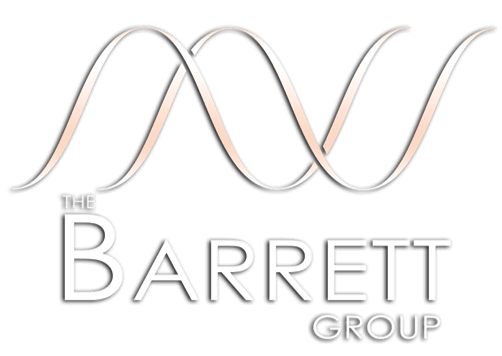At the Barrett Group we make it our business to help executives clarify their career objectives (with our Clarity Program©) and then market themselves effectively. To do this as consistently as we do, we find it useful to take stock of the market situation every once in a while. Like a swimmer lifting his or her head up over the waves and verifying position and direction. By examining our own market observations. So, let’s compare Q1 and Q4 so far to understand what seems to be happening in the executive career change market.
Note, these remarks refer only to our own clients.
In the first part of the year, the income segments of $100,000-$200,000 (total annual compensation). And above $200,000 were equally balanced at about 49% each. Some 39% of these clients state they were unemployed on average about 5.6 months before signing on. These results were quite polarized at the top and bottom end. With 43% of unemployed clients having been unemployed for 3 months or less. And 54% of unemployed clients having been unemployed for 7 months or more.

In Q4 now, these results show a budge in clients in the $100,000-$200,000 income category that has risen to almost 60% of clients vs. the first quarter’s 49%. Now 51% of clients say they have been unemployed, and the average unemployment period has lengthened to almost 11 months. So, it would seem that the middle of the market has experienced more pressure during the last six months.
Another important aspect that we look at is our clients’ motivations for seeking our services.
These vary over time, and it seems there is a coherent pattern here, too, if we compare the first quarter versus the fourth quarter so far.
Often clients reach out to us because they are reentering the job market after a pause. The pause could be because they have been with the same employer for a long time. Or due to illness, unemployment, or even other reasons. Recently we have repeatedly heard from the Bureau of Labor Statistics that people who were not actively seeking employment (and therefore not technically unemployed) have been reentering the market in the last year or two. So that not only is unemployment low but the number of employed can grow without unemployment sinking… if that makes sense.
Some 23% of our clients in Q1 cited this reentry as a factor in their need for support. This share sank in Q4 so far to about 19%. The threat of possible unemployment on the other hand rose in Q4 versus Q1 from 16% to 22%, a fairly sizable increase. Does that mean that as the expansion moves into record territory, companies are finding more and more ways to be efficient at the cost of mid-level and senior jobs?
Another classic motivation we hear a lot is “I must get into a new industry.” Now this can have various meanings. From an acknowledgement that the current industry is losing its luster to a sense of personal boredom. And the need for new adventure. It can even mean that the client sees other industries as potentially more lucrative given his or her skill set. All of these are valid perspectives on the market.
Switching industries is a specialty at the Barrett Group because we help our clients to highlight the transferability of their skills and experience both during the Packaging (Resume Refresh and LinkedIn Reboot) and the Presentation (Interviewing) career change stages.
This need to change industries has waned some though when we compare Q1 and Q4 so far. Dropping more than 12% points to just 11.6%. This may support the pressure we believe we see in the middle market. And therefore a shift in would-be career changer sentiment toward a search for security.
On the other hand, the other major motivation “My present income is too low” has risen sharply in the latest results, jumping more than 8% points to just under 20%. This certainly seems consistent with the bulge in mid-market job seeker population who have generally more upward income opportunity.
“No growth potential,” though remains a very consistent and strong motivator for our clients in both quarters at about 28%. This indicates that dissatisfaction with growth opportunities continues to drive would-be career changers to a large extent regardless of the economic cycle. With our active assistance, about 75% of Barrett Group clients find their next opportunity via the “unpublished market.” This has even greater relevance in today’s market because the unpublished market offers opportunities with potentially less competition and therefore higher compensation.
Perhaps it is time that you, too, lifted your head up and took stock of your career situation. We help hundreds of people like you every year, so reach out and let’s discuss your true potential.
Peter Irish
CEO
The Barrett Group
Distraction As A Way Of Life
Distraction as a way of life. We have discussed at some length the fact that people have very different behavioral styles, particularly the executives who come to us for help with their careers. We use the DISC instrument as a way of detecting behavioral tendencies.
The high D (Dominance) types are driven and focused but often have no patience for details or the attention span to follow longer term programs. The high I (Influencing) types are so busy being creative or talking or meeting new people and seeking new adventures that they often achieve nothing at all. High S (Steadiness) and high C (Compliance) personalities have their own particular issues.
However, all of these types can suffer professionally and personally from confusing activity with progress.
If I am busy, the logic goes, then I must be productive. Think about people you know who constantly have to listen to music or TV so that they are not left with a spare moment to reflect. Others are constantly going somewhere, doing something, again, for the same reason—so that they do not have to be alone with their thoughts and self-reflections.
Increasingly, it seems to me, American society is losing the capacity for reflection. The ability to value moments of solitude and silence in which to contemplate and listen to your own thoughts and feelings and consider the bigger picture.

Many years ago, I worked for a brash, Dutch manager in Europe who was always busy and always outspoken, though to his credit he also cared deeply about his team and their well-being. He was certainly a victim of this incessant drive to act instead of reflecting. But he also left me with one particular pearl of wisdom. At one crucial moment he whispered to me in an aside during a meeting “You know, people have more brain cells in their guts than in their heads…” Now I don’t know if this is medically correct, however, it is definitely my experience that when I make a good or bad decision, if I listen to my “gut” I will know how I really feel about the decision and sometimes change it.
Some deeply rooted, evolutionary process operates at the subconscious level, I suppose, and confirms via messages from those “brain cells” in your gut whether you have made the right choice. However, you have to be open to this input, and that requires a certain degree of tranquility, of listening, and of reflection.
Think about that hamster you’ve seen running wildly on his wheel, turning and turning and going nowhere… That is the state in which we often encounter executives who know at some subconscious level that they need to change their ways, but they do not know how. Or remember the story about the foreman and the lumberjack. The foreman notices how one of his men is always working hard but actually not producing very much timber. Suspicious, the foreman walks over and casually inspects the edge of the lumberjack’s axe.
“You know,” the foreman says, “you could be a lot more productive if you would sharpen this axe.”
“Sure, but I don’t have the time,” replies the lumberjack.
That is a perfect metaphor for businesspeople who are too “busy” to actually look after their own careers.
At the Barrett Group we employ a Targeting step at the outset of each career change program that ensures a thorough reflection on personality, short-term needs, and longer-term objectives. We call it the Clarity Program©. Here’s what one recent alumnus, Jim Lareau, has to say about its benefits:
“I hope all the other coaches have the ability to be as insightful and inspiring as Mark [his Clarity Coach] was to me. He helped me to think “deeper” about me and what I need/want/am looking for in my next great adventure. Thank you, Mark!”
So, turn off the TV, close your eyes, listen to your gut, and consider the lumberjack or the hamster. Get Clarity. Give us a call.
Peter Irish
CEO
The Barrett Group
Alone In The World
Several times in my career I have been without work. Sometimes by choice. Sometimes not. And particularly in the latter case, it can be a very scary feeling… almost as if you are alone in the world. You send all of those emails, you submit your resume, you try to engage with recruiters, you reach out to your contacts and affect some semblance of happy confidence… but in the quiet of your own mind, you may well be very afraid.
Worrying is normal, by the way, and according to Daniel Goldman (Emotional Intelligence) may have its evolutionary roots in practicing for future possible events—preparing for them so as to not be caught off guard.
But, like everything else, when taken to extremes, worrying can be destructive.

It is always helpful under such circumstances to look for some external input, perhaps from a friend, a loved one, a parent, a spiritual guide, a coach… Someone who can help you weigh the evidence and know whether your worrying is helpful preparation or just plain, frozen-in-the-headlights fear. Sometimes just being able to talk about what concerns you can help you feel better and more in control.
On the other hand, even if you are not specifically afraid, looking for a new job can be a huge amount of work and to many people, it is hard to know where to start and how to prioritize one’s time. Combing through job boards and applying can be very time-consuming, as can networking, interviewing, or talking to recruiters.
Our clients have an enormous benefit in this regard, because they have access to a six-member team, so that they never feel alone in the world, and have tremendous experience always at their beck and call.
Our clients start with a Clarity Coach who guides them through the Targeting step in our five-step career change process, the Clarity Program©. The output of this step is a clear understanding of the client’s target and an agreement about how we will approach the market together.
Next comes the Career Consultant. This team member guides the next four steps in the process (Packaging, Market Access, Preparation, and On-Boarding) and remains the sounding-board and principal client resource as the program advances.
At the right time in the process, we bring in a Researcher who helps winnow through the market using our state-of-the-art databases to select companies and contacts as relevant per the Targeting step. A Writer comes in, too, to prepare cover letters and resume versions as necessary and appropriate to optimize campaign results.
A Negotiation Coach joins the team as the offers start to come in and leverages the three decades of experience the Barrett Group has in this field to benchmark comparable salary and benefits packages and to find additional compensation elements. As a result, we almost invariably find another $10,000 to $20,000 in compensation during this step. Which is hardly surprising considering we have done this thousands of times over the years and know where to look for that hidden treasure.
Now this whole process takes time and the feelings of worry, anxiety, or outright fear do not necessarily evaporate. So, when there is a bump in the road, we also bring in our Client Concierge (one of several senior resources) who has guided thousands through this process and can literally take the client by the hand. They recognize and avoid the potholes, and help him or her focus on the straight and narrow path that leads on to career success. Now you may be the truly confident sort who does not need any moral support. But if you are not, how would it feel to have a professional team at your elbow when you face the job market? One thing is for sure: you would never feel alone in the world.
Peter Irish
CEO
The Barrett Group
The Human Touch
These days, as I understand it, most stock brokerages and similar financial service firms primarily offer exchange traded funds that essentially track a specific market basket of stocks, often something as recognizable as the NYSE or its ilk. The reason is that machines do this better than humans. They recognize the patterns faster, make the adjustments faster, and ultimately deliver a more consistent result.
That is certainly also true in many other areas of human life. When was the last time you struggled with a map while you were driving? We don’t have to anymore because the navigation has matters (generally) in hand.
In sports, I have heard that Stephen Curry improved his game using high tech lasers to track and suggest moves, but I can’t verify that. In San Francisco, there was a robotic barista as a novelty (I hope) up on Market Street. And I cannot tell you how many robocalls I personally receive and hang up on every day.

Closer to home in the job market, machines also hold sway, sorting millions of applicants for hundreds of thousands of jobs and proposing that some be invited for an interview and some receive a dear John letter (or just be quietly discarded).
Those who know me recognize that I am a fan of automation. If we can automate a process, I’m all for it… up to a point. And that point is when we actually want to listen to a prospect’s or a client’s story and help them address their issues.
It is at that point where we at the Barrett Group draw the line.
Our coaches and consultants work hard on improving their interpersonal skills, their understanding of different personality types, active listening, and simply extending courtesy and compassion to people who have reached out to us because they have one form of stress or another, be it boredom in a repetitive job, fear of being downsized, desperation after long term unemployment, or a need to finally give back and contribute to society.
Our coaches and consultants regularly go beyond the call of duty (something few algorithms would be caught dead doing) and that is why we garner great testimonials like this one from one of our clients who recently completed the Clarity Program©:
“I have no suggestions for improvement. Scott [his Clarity Coach] was excellent throughout our conversations. He helps guide you to find out what really makes you do what you do. His explanations as we jumped into the DISC profile were nothing short of awesome! If you are looking to learn about yourself, I would highly recommend using Scott and the Clarity Program. Thank you.”
Or perhaps this one from Denis Sovik, who also just completed his Clarity Program©:
“The process was extremely detailed, and Hiyam [his Clarity Coach] was flexible to work around my schedule, even making some intra-day time changes. Superb experience.”
The Clarity Program© is only the first step in a five-stage career change process that the Barrett Group has perfected over the past thirty years and with which we have helped thousands of executives clarify their career objectives and then find their targeted next step.
At least as long as I’m in charge, we will seek to balance the efficiency of automation with the caring and compassionate approach we have lived for thirty years and continue to deliver that human touch.
Peter Irish
CEO
The Barrett Group
The Great Market Mystery
Imagine the glorious future when all you have to do is go online and type in the sort of job you want, the location, and maybe the target compensation… and out pop two or three job offers.
Well, we’re not quite there yet. In fact, we may be farther away from that job seeker’s utopia than we’ve ever been because there has never been as much data available to job seekers as there is today, and oddly enough, that does not make the search any easier.
Let’s take a simple example. Suppose you want to be a Vice President of Sales. Nationally this morning on a popular on-line job board I found 4,577 such jobs advertised nationally, 121 in Atlanta, 49 in Houston, 31 in St. Louis, (MO)…
Or what about CEO (376 nationally) or CFO (948 nationally—315 senior level vs. 131 entry level).
That’s too general, you say… Well, OK. How about a full-time Operations Manager in the food industry earning at least $80,000 per year anywhere in the US? This morning the job board suggests there are 257 such jobs available, but only 3 in Houston and 1 in Buffalo.
Is that better?

The fact of the matter is that there are lots of jobs advertised and, of course, hundreds of applicants for every job. The labor involved in applying for even several of these jobs is significant, and the competition is intense. The algorithms rule and the hiring managers have the upper hand in this “buyers’ market.”
So that is why many job seekers report frustration, anger, resentment, and even outright helplessness in the data desert that the on-line job boards have become.
Anecdotally, one person who recently contacted us claimed that he had applied for more than 100 jobs (at the Director level in “Chicagoland”), had 10 interviews, received 4 offers, and that none of those offers was attractive. That’s why he came to us.
Another victim of too many interviews added this comment, “I really need to see someone who sees my experience and [doesn’t] tell me that I am over-qualified, and they can’t afford me.”
Only about 15% of our clients at the Barrett Group land their dream jobs through the on-line markets. We help them to navigate the algorithms and come out on the narrow end of the lead funnel, perform well in interviews, and then negotiate a higher offer.
So, it can be done.
Another 10% of our clients land through the recruiter market, another perfectly legitimate way to find a job—but remember, a recruiter has a very specific job description and candidate profile against which he or she screens applicants. If you do not tick all of those boxes, you probably will not even hear back from the recruiter.
Fully 75% of our clients land their next career step through what we call the “unpublished market”—so what is this mysteriously hopeful place and how can you get there?
Call it the “back door,” or serendipity, or simply good luck… but we believe you make your own luck by doing the right things in the right way.
Firstly, you need to be clear about your targets. That’s what the targeting stage of our process assures (the Clarity Program©). Next you need to be packaged and branded appropriately for your target (the next stage in our process). Only then can we really help you go to market.
Generally we start with your own network. You know a lot of people, but you don’t necessarily interact with them very often. So, get networking! Be prepared to give because “givers gain” as they say at BNI. On LinkedIn you probably know even more people (theoretically). And every one of them knows other people, who know other people…
At the end of the day, if you know how to network and use the available tools, with some support from the Barrett Group’s sophisticated research capabilities, you can almost always find someone who can introduce you to your target decision makers who even now are thinking about organizational changes, unannounced vacancies, and creating new roles they have not even published. If you happen to cross that decision maker’s desk or screen or meet him or her at some function at the right time—ta da! You are at the head of the queue with little competition and very well placed to use the excellent personal branding and interview preparation skills we have helped you hone to land that job of your dreams.
So that’s the mysterious unpublished market. It is everywhere around you… if you know how to look.
At the Barrett Group, we’ve had this slippery, shifting market in focus for thirty years, so let us know if you need a little guidance. The job market does not have to be such a mystery if you have a good guide.
Peter Irish
CEO
The Barrett Group
Is The Grass Really Greener…
…on the other side of the fence? Greener.
Most of us at one point or another in our careers feel under-appreciated, like the boss does not really see all the wonderful things we do, like the team takes us for granted, unloved, under-paid, etc. Human beings have ups and downs, of course, and it’s always hard to qualify these feelings. So, what can you do to be more confident when making such a key decision?
One simple way is to find someone you trust who as far as you can tell either has your best interests at heart or is a neutral third party who can listen to the evidence and give you an honest opinion. You remember the story of Diogenes walking through Athens with a lantern… looking for an honest man? Sometimes it can be hard to find someone you really trust.
Another approach is to actually do some research and see if your remuneration stacks up. Or if your performance on specific key performance indicators supports your self-appraisal. But truly comparable data can be hard to find, and do you have the spare time and will-power to perform such a self-appraisal rigorously?

In general, though, most such decisions (to stay or go) are actually driven by the very fundamental balancing of the three drives allegedly underlying most human (and in fact, vertebrate) behavior. Daniel Goleman in his seminal work “Emotional Intelligence” paints a simplified picture of how the limbic system (our primordial emotional guidance system) grew out of our sense of smell and therefore addresses such decisions at a very basic level. Can I eat it, mate with it, or should I run away? In other words, gratification, dominance, or safety.
We all come to the world with a basic set of behavioral inclinations that are then affected by our experience.
At the Barrett Group we use DISC as a way to capture these behavioral tendencies. We help clients understand why they behave the way they do. How this affects their interactions with others. And what, if anything, they can do to improve their satisfaction and performance.
But your life circumstances are also key. We all go through stages. Sometimes gratification is key (new car, new love, gourmet meal, etc.). While at other times we realize that safety is key and begin to fund that nest egg. At other times we want to tell someone or the world in general to “go to hell,” an expression of our need for dominance. Which impulse should you follow?
Where are you now and what are your medium terms goals? That is the key question you need to ask yourself when you feel that “Should I stay, or should I go?” question stirring in your bowels. Can I afford to drop everything and change horses? Will the pastures really be greener when I do?
Again, at the Barrett Group we use a simple Diamond Map instrument to help our clients during the Targeting stage (the Clarity Program©). Our five-stage career change process begins with clarifying where our clients are now and where they might like to be in 12 months. Our four fundamental questions relate to finances, career, health, and relationships. The result is not really scientific. But it incorporates the neutral third party aspect mentioned above, the quantitative sifting of the evidence, scope for gratification balanced by dominance balanced by safety… In other words, in an imperfect world, this instrument helps individuals under stress come to conclusions that are rational and feel right.
Here is what one recent client had to say about our whole program after signing his new employment contract:
I can honestly say that if it had not been for the life & career coaching by Greg & Julie, I would likely not been able to convert on this opportunity. Although the job opportunity did not come from the traditional networking activity that I was doing, the tools & procedures that I was coached on for the preparation of the resume & cover letter, the initial phone interview and the subsequent 8 face-to-face interviews, I can honestly say that I would not be in this position. I thoroughly enjoyed and will value for the rest of my career the work that I did with the Barrett folks. Thank you everyone!!
John Shaw, October 2019
So, when your leg starts to twitch and you feel it might be time to go, consider our Clarity Program© as a possible solution for making that key decision.
Peter Irish
CEO
The Barrett Group
Happy Landing (in less than 90 days)
In this Chairman’s Blog we like to share both general information such as statistics to help career changers understand what they are facing but also anecdotal evidence of individual’s challenges and successes. Happy Landing.
Today let’s talk about Rossalyn—definitely one of the latter.
Rossalyn became our client in June 2019. Here’s what her TBG Senior Career Consultant had to say about her at the time:
Rossalyn has been in the restaurant industry for over 20 years. She is currently the COO of a regional restaurant chain. Rossalyn has seen her responsibilities diminish over the last 2 years. At one point she had responsibilities across multiple functions reporting to the CEO. More recently others have been promoted to positions where she once had responsibility and they now report directly to the CEO, not to her as they previously had. Rossalyn would like to find a position in the industry similar to that she held 2 years ago. She is also open to other options probably in the industry. She is looking forward to the TBG Clarity Program© to help her understand how else her experience fits in.

Rossalyn went through our Targeting stage (the Clarity Program©), rating the entire experience “Excellent” by the way, in one week (we let the clients drive the timeline)!
She has a predominantly “High D” (Dominance) behavioral tendency (as do many of our clients) from a DISC perspective, so she is driven and demands a lot of herself and of others.
Here is an excerpt from her Personal Strategic Plan (the last step in our Clarity Program©):
VISION:
Working in a growth and development environment with a link to giving back / social responsibility
MISSION:
Research on different concepts, overall concept strategy and then extensive work on connections and investigation regarding culture and values of the organization
PURPOSE:
To teach, inspire and elevate the people with whom I work
GOAL 1:
Make $250K Base Salary (Financial Stability)
GOAL 2:
Role where she can learn & develop (not worried that much about a title)
GOAL 3:
Being able to give back
Her Clarity Coach rated her as highly motivated and expected her to follow through on her assignments as she progressed through the following Career Change steps (Packaging, Market Access, Preparation, and On-boarding).
Her Career Consultant also obviously was no slacker either because in less than 90 days our Chief Consulting Officer proudly announced the results in his recent email:
Our client Rossalyn landed in less than 90 days… Paula [her Career Consultant] and Rossalyn did some amazing work to make this happen. She said that she would be willing to take an offer with a salary as low as $125,000 but she ended up with over $300K total comp with a $200K base.
Happy Landing, Rossalyn! Now this hardly happens every day, but it does illustrate the effectiveness of our Career Change process, particularly when the client follows the process and demonstrates real drive. In fact, clients who follow the process are currently landing in about six months on average. As our Chief Consulting Officer went on to say about the under 90 days…
Does not happen often, but it is sweet when it does.
Regardless of your state of play, if you feel you are not earning the satisfaction you deserve from your job you might want to give us a call. Without a doubt, we can help you step on the gas professionally.
Peter Irish
CEO
The Barrett Group
Many Happy Returns – Return On Investment
Sometimes our clients are surprised at first to hear about paid search. They ask us, why should I pay for career management services, what is my return on investment?
Let me answer this with examples from my own life. All of the numbers are exactly true. The timing and the circumstances I will keep to myself if you don’t mind.

At one point in my life I was eager to move up and earn more but my employer felt they couldn’t afford it, so I hired a career management firm and paid them $4,500 (a lot of money for me back then). They taught me about myself using the Myers-Briggs Type Indicator, helped me write a resume and provided me with a mailing list. It took about two months until I had a job offer in my targeted industry at a substantial premium.
In that instance, I increased my compensation over the next three years by $150,000 cumulatively, a 33-fold return on my investment.
The next time, I was in Europe. I wanted to change countries and industries. I had no time due to the demands of my role. So, again, I hired a firm to help me research the unpublished market, write a strong resume and take me to market. In that case it took about three months until I had two solid offers in my target market. The return was also good. For $5,000, I added $200,000 in compensation over four years, a 40-fold return.
It gets more difficult sometimes as you get older, so the last time I hired a career management firm in Europe, I actually paid then €20,000. Their process was analogous to our process at the Barrett Group and included a thorough targeting exercise, psychographic analysis of behaviors to improve my self-knowledge, professional photos, handsome, snail-mail packages, and a hand-selected list of board chairmen (and women) in my targeted industries and geographies. We launched the campaign in September. I accepted a job in December.
Over the next three years, I received $600,000 in compensation, again, a 30-fold return.
Then there is the Barrett Group whom I hired in 2014 when I came back to the US. They helped me through a complicated set of career adventures until I realized that I actually did not want another corporate job, but would rather be in business for myself. Today we use the Clarity Program© (our “Targeting” process step) to help our clients clarify their targets up front partly because of my experience in 2014. Ultimately, I bought and built a business in California and the cash return (excluding equity) over five years is again 30-fold.
Are you seeing a trend here?
Yes, I may be unusual, but of the five times I used career management services, they were successful 80% of the time and returned 30-40 fold on my investment.
At the Barrett Group we offer a highly sophisticated, five-step process including our unique targeting step (the Clarity Program©), thirty years of professional experience in career management, hundreds of testimonials. Each full program client is supported by a six-member team, one of who is a negotiation coach. We help clients maximize the offers they receive by leveraging the experience of all of our historical clients to look under every stone and winkle out additional compensation elements before they accept a final offer. Typically this will add $10,000-$20,000 per client, easily offsetting our fees.
Think about the opportunity cost you are incurring by not employing a career management firm yourself. The career market has become more complicated and your time is valuable. Maybe it’s time you explored your options. We look forward to hearing from you so you, too, can enjoy many happy returns.
Peter Irish
CEO
The Barrett Group
Footprints in the Snow
We always try to address topics of broader interest to career changers in this blog. By and large, this means exploring “personas” that we run into repeatedly—whose issues we understand and whose career challenges we can help ameliorate. We’ve been doing this for three decades, so, of course, we have learned a thing or two about helping executives clarify their career objectives and then go out and get that perfect job. Footprints in the snow.
We are different from others in this space in several key ways. One is our Clarity Program© that constitutes the “Targeting” stage of our five-stage career change program. After all, our clients’ aspirations are far more complicated that just a title, salary, and geography. The Clarity Program© treats clients as the unique individuals they are.
Another key differentiator is that fully 75% of our clients land not via on-line job boards or recruiters but via the “unpublished market” where the competition is less and the remuneration is typically higher.

One key skill in navigating the unpublished market is the “information interview”—a telephone or face to face discussion with someone you have probably never met before who has been introduced by a mutual acquaintance. At various stages in my career I have had to conduct hundreds of these. Recently, during some career coaching sessions, I realized that the techniques I have evolved are extremely helpful to neophytes, so let me share a few of these here.
The first is what I call a branching script. As you approach a conversation with someone whose background you might know, but about whom you otherwise know very little, consider the subjects that might be of mutual interest and how you might introduce them in a gentle manner.
For example, when I was in the business coaching business not too long ago, I often found myself having networking discussions on the telephone with people who had no real idea why we were planning to talk. My branching script then began something like this: “There could be several topics of interest between us. For example, do you know business owners who are struggling and would benefit from a highly experienced and confidential advisor, or do you know individuals who might be thinking about transitioning in their careers and who might like to become business coaches, or who would I know that you might like to meet, or…” You may be surprised, but more often than not, my counterparts would say something like, “Actually, number 1 and number 3 sound relevant… Let’s explore.” For an information interview, that is a wide-open door. So consider preparing a branching script before you start an otherwise unplanned networking discussion.
Another technique that seems to work well is to visualize your discussion as a sort of radar diagram with radiating spokes representing different perspectives on the subject.
For example, let’s say you are planning to talk with the CEO of a larger business, not specifically about getting a job there, but more generally to understand what occupies that person and tangentially where you and he/she might have common interests—the classic information interview.
So in this case, one of the spokes on your radar graph might be what customers want from the CEO. Another might be what consumers want. Or employees. Or vendors. Or shareholders. Or the CEO him- or herself… In other words, by walking around the periphery of his or her business, you can get a very good understanding of how that person sees his or her world, where the challenges are and where there may be opportunities. Ultimately, this provides you with insights on how you might position yourself to address those challenges or take advantage of those opportunities were you to join that company or perhaps a competitor in the same industry.
My personal mental image of this process is from a bird’s eye view, looking down on my footprints in the snow as they slowly encircle the subject matter. It helps me make sure I have covered all of the perspectives I planned to cover, and lets me know when I’m finished. I hope you find these insights helpful and invite you to get in touch if you feel you could benefit from further career coaching… or just for an information interview.
Peter Irish
CEO
The Barrett Group
When Hiring Managers Go Silent… Getting Ghosted!
by Julie Norwell
You wrap up an engaging interview at a company and come away feeling that this position would be a great fit for you. You have the impression that the hiring manager feels the same way about you. He walks you to the door, you shake hands, say goodbye…and you never hear from him again. Ever. Not only does he not call, he doesn’t respond to your follow-up calls or emails. You’ve been ghosted!

If this has happened to you, you’re not alone.
Companies have been ghosting applicants for years, and it happens across many different industries. A recent survey by Recruiting Daily Advisor found that among applicants that have gotten ghosted, 23% were seeking jobs at business, finance and legal companies, and 22% were job seeking at advertising, marketing, PR and media companies. Many other industries also make the list, including healthcare, retail & hospitality, and tech.
Ghosting is a term that got its start in the world of dating when one person suddenly quits returning the phone calls, emails or texts of the other with no explanation because, you know, it’s too awkward to tell someone that you’re just not that into them anymore. Instead you just pretend that they don’t exist until they quit trying to contact you.
In the business world, the reasons behind getting ghosted are usually not so petty, but it’s equally painful – perhaps more so because, your ego notwithstanding, there are mouths to feed and bills to pay. How long should you hang in there waiting for signs of life?
Job Application Black Hole

Some people experience ghosting at the application stage. They send a resume to company after company with no response. There are several reasons for this:
First, maybe you’re not qualified for the job. According to Dan Resendes, Chief Consulting Officer at The Barrett Group, the biggest mistake job candidates make is submitting an application that doesn’t have 100% of the “must have” job qualifications. It demonstrates two strikes against you: 1) You aren’t qualified, and 2) you didn’t follow instructions. In this case, applying is a waste of time.
If you are 100% qualified and your application still gets no traction, your resume might be to blame. Your resume should reflect ALL the job qualifications, and not just in the body of the resume, but also in the headline.
Most hiring managers handle huge numbers of resumes and only read the top few lines of each one.
If you’re applying to a position requiring “international sales experience” and your resume headline reads “sales experience,” you won’t get a response – even if your international experience is highlighted later.
At the same time, you should omit all skills outside the scope of the job requirements. Many people include a laundry list of common core competencies in their resumes, but this sometimes works against you. Hiring managers might think you’re over-qualified, would become bored, or might ask for too much money. It’s counter-intuitive, but if the requirement is for 20 years of managerial experience and you have 25 years of experience, write only that you have 20 years of experience.
Lastly, if you’re applying as a stranger to a job posting, keep in mind that sometimes the job opportunities don’t actually exist. Companies often already have a #1 candidate in mind, perhaps through a referral or an internal promotion, but company policy requires that the job be posted publicly. If this seems unfair, don’t get mad; get a friend on the inside who can propel your candidacy.
How NOT to Get Ghosted
First and foremost is to avoid getting ghosted in the first place. How? By developing social ties and good communication.
Get on the Inside Track.
You should never apply as a total stranger to a company before exhausting all avenues to find a social connection. If you’re looking at $80K+ positions, you can be sure that the people who land these positions are not strangers to the company – they will have been recommended for the role. Find a friend to recommend you and you will have personal reputations and political clout to support you.
If that is easier said than done, don’t fret. Many successful professionals don’t know how to leverage networking to their advantage when they’re new to the job market. They’ve been on the giving, not the receiving, side of networking and may be out of practice with the slow, inconsistent process of building and expending social capital. But no one with 10-20 years of work experience, who has impacted people’s lives through hirings, promotions, and business deals, should have go into a job market cold. Always leverage your social capital first by asking your contacts how you might best proceed for a job.

Know Where You Stand.
When you’re in the screening process ask your counterpart (with a twinkle in your eye): “Do you think I’m a good fit for this opportunity?” Often, she will be honest and say, “Yes,” and tell you next steps. If the answer is “No,” it gives you the opportunity to offer more information about whatever reservations she might have.
As a general rule, the last item of discussion should always be a mutual agreement on next steps so you know the timeline for follow up communication. If they say, “We’ll get back to you by Monday,” and you don’t hear from them, wait one day and check in on Wednesday. If you haven’t nailed down a timeline, wait one week before reaching out to check in.
How to Handle Getting Ghosted at the Interview Stage
If you do get ghosted, there are several things you should keep in mind:
Be Patient and Courteous.
If you get no response to your check-in email, wait one week and call. If you get voice mail, leave your name, phone number and a short message saying, simply, that you’re checking in. Nothing more. DO NOT reference any other attempts to check in or offer reprobation about the lack of communication, lest it sound critical. Remember, this is the ONE person who can open a door for you. When all else fails, try to reach out to someone else at the company, preferably one with a social connection to you, who can advise you on how to proceed.
It’s (Usually) Not Personal.
Don’t take it personally. The most common reasons applicants are ghosted by companies is simply bureaucracy or inefficiencies in the hiring process. Candidate selection processes are often handled by lower-tiered people who are overwhelmed or inexperienced. Sometimes decision-makers aren’t available for interviews during the given timeline. Confidential corporate changes might be underway that hiring managers are prohibited from communicating to applicants. Or maybe the hiring manager just got hit by a bus. In other words, it’s them, not you.
Don’t Give Up.
Resendes tells a story of a client who came to The Barrett Group for career coaching six months after being ghosted by a company. Although he felt like he was a perfect fit during the interviews, he got no response to inquiries about his applicant status. He grew discouraged and gave up. His career coach convinced him he had little to lose in following up again, so he called the company and was greeted with a surprising exclamation: “Thank God you’ve called! We wanted to hire you but misplaced our hiring files and didn’t know how to reach you!” The client swore that the coaching fee was the best money he’d ever spent because he would not have called the company again on his own. The takeaway: If you are running short of options, you have no reason to stop following up.
Reverse Ghosting

If schadenfreude is your thing, you’ll be interested to learn that ghosting now cuts both ways. The incidence of job applicants blowing off scheduled interviews or even accepting jobs only to fail to show up for work without notice or further contact is on the rise. The trend has been reported not only by professional social network, LinkedIn and many news organizations, but also by the Fed.
Undoubtedly, the tight labor market makes it easier for job applicants to give companies a taste of their own medicine, but resist the temptation to do so.
Even if a better opportunity surfaces, it never pays to burn bridges. Keep to the moral high ground and hope that companies will learn their lesson about ghosting!
More articles by The Barrett Group:

